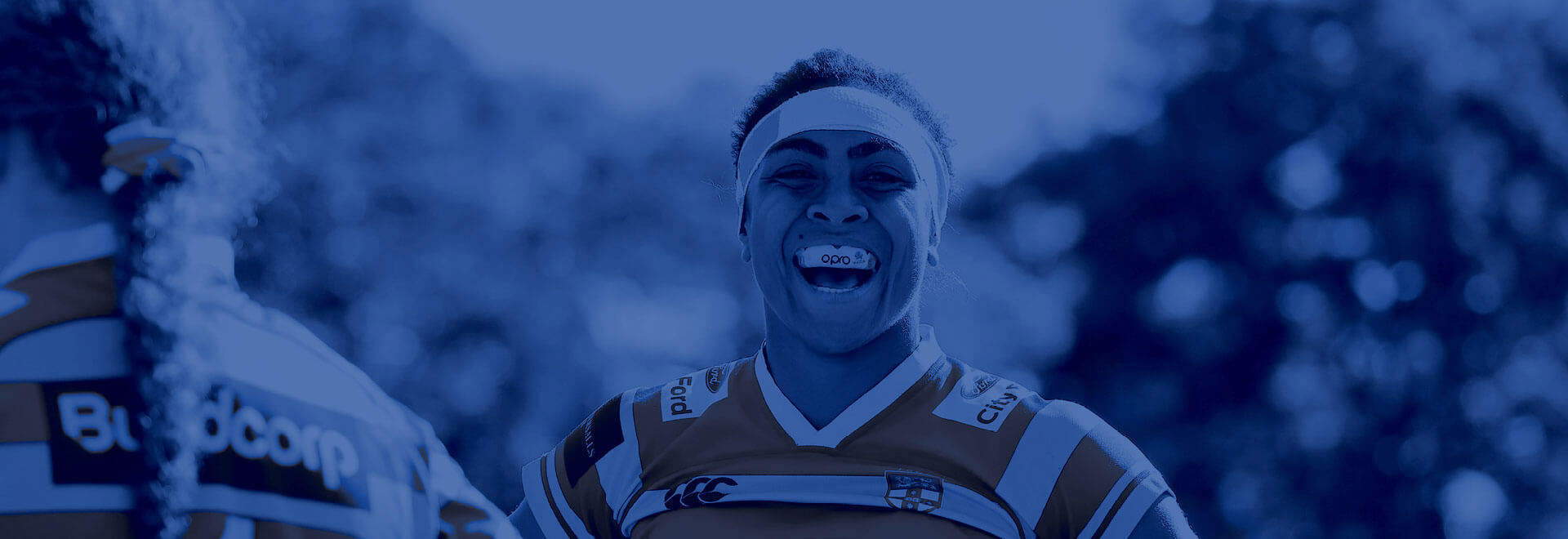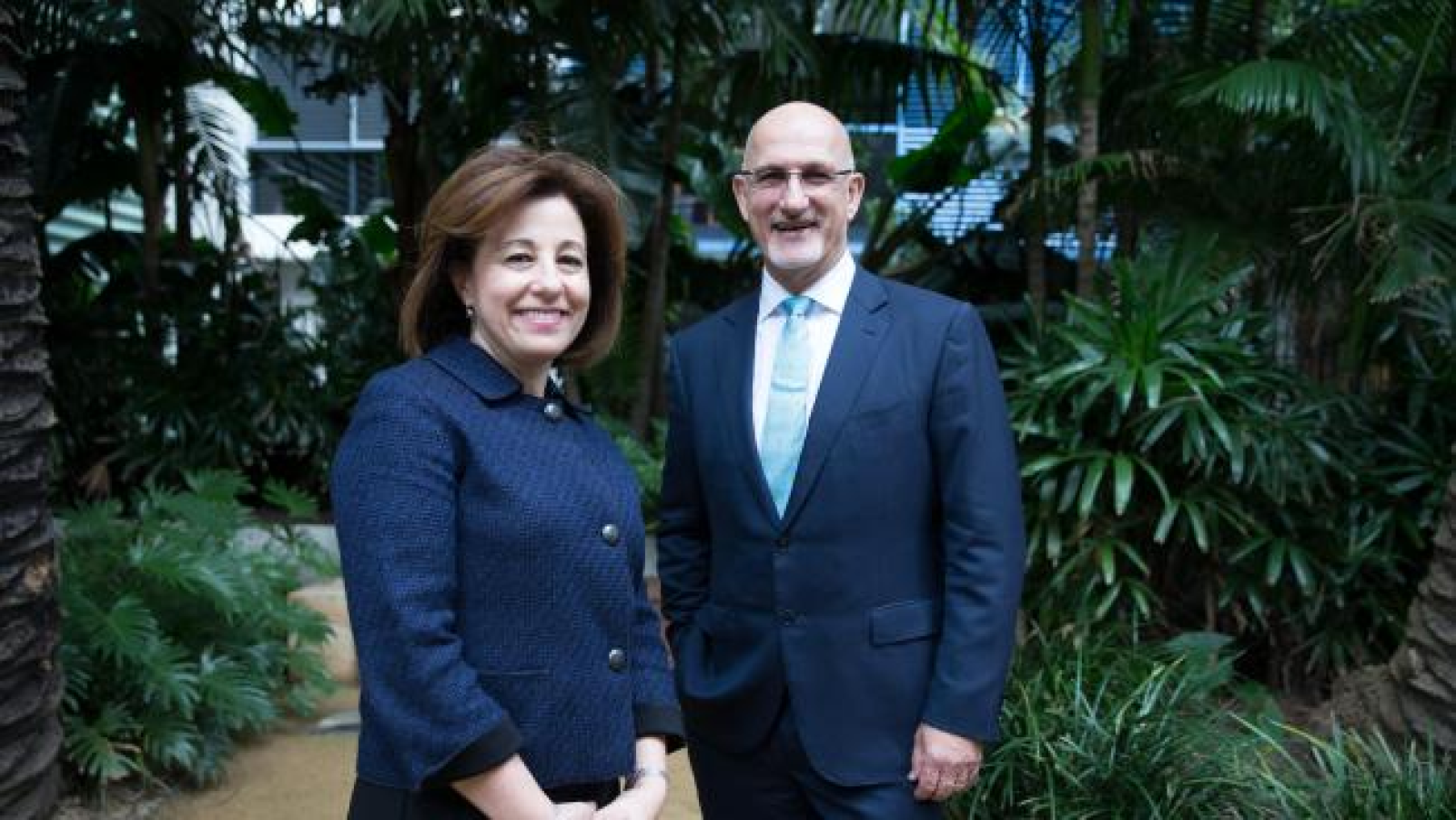Tony and Josephine Sukkar started sponsoring rugby soon after they founded their construction company Buildcorp in Sydney 25 years ago.
Tony had played first grade rugby at Sydney University in a team captained by company director and former IAG chief executive and former Wallaby Michael Hawker, which also included former Wallaby captain Nick Farr-Jones and his brothers. Former prime minister Tony Abbott was also at the club.
After working at Lend Lease and Girvan, Mr Sukkar with the support of his wife Josephine, a high school teacher with a science background, decided to go out on his own with Buildcorp. The company initially sponsored Sydney University Rugby Club in 1992.
“We were not entirely sure how to make it work but we thought why don’t we go down to the rugby on the weekend and take a few clients and see how we go,” Ms Sukkar tells The Australian.
“Rugby was a good way of marketing our business, particularly when we started,” she adds. “We would invite clients and their families to No. 1 Oval at Sydney Uni.”
For the Sukkars it was also a way of combining their work with their passion for rugby.
“For every home game we would have 100 clients on the balcony overlooking the oval and we would have jumping castles and face painting for the kids,” says Ms Sukkar.
As Buildcorp expanded into Queensland and Victoria, the company’s sponsorship of rugby expanded to the universities of Queensland, Melbourne and Newcastle. Then, an approach to sponsor the women’s rugby team at Sydney University sparked an interest for Ms Sukkar in the then almost unknown sport.
“When the women’s team came to ask us for sponsorship I felt embarrassed as I didn’t even know they existed,” she said.
Her interest continued and last August she was appointed president of Australian Women’s Rugby. This week she will hold a lunch at Buildcorp’s headquarters that will include some of the women from the seven a side rugby team headed for the Rio Olympics, the coach of the women’s team, Tim Walsh, and AOC secretary-general Fiona de Jong.
While the women’s sevens rugby side is now sponsored by Qantas, Ms Sukkar is also planning this week to pitch for more sponsorship of the women’s 15 rugby team, which heads to a World Cup in Ireland next year.
“Our concern is that while we have a team going to the Olympics in Rio, there wasn’t the support for women who were going to Ireland next year,” she says.
“We are hoping to encourage more companies to sponsor the women’s team; to give them the best chance of winning.”
Interest in women’s rugby has been heightened because of its inclusion in the Rio Olympics, which starts on August 5, and where the Australian women’s team is considered a possible medal prospect.
“Women’s rugby wasn’t a big hit on the Australian radar,” says Ms Sukkar, who is also a director of Opera Australia, a member of the nominations committee for the Australian Rugby Union) board, and a director of the Australian Rugby Foundation.
“But I developed an interest in it and we began working more closely with the ARU to see what we could do to put more focus around it.
“Since Bill Pulver took over as ARU chief executive in early 2013, he has put a real focus on women’s rugby, particularly the seven a side game as a way for women to come into rugby,” she says.
“It has grown legs. But like every other women’s sport, it has a long way to go.”
Ms Sukkar says sponsoring women’s sport is good value for business as it provides valuable exposure and goodwill for a company at a much lower cost than sponsoring men’s sport.
“The women’s team at Sydney Uni is often having to do shout- outs like asking people to help at a barbecue at the local Bunnings to raise money towards the cost of registration,” she says.
“My son Jordan plays rugby for Sydney Uni and I don’t see the men’s team having to do the same thing.
“If you are resourceful you can get a lot more return from a much lower investment with women’s sport.”
Based in Camperdown, not far from Sydney University, Buildcorp has developed a speciality in office fit-outs, recently revamping many legal firms in Sydney, Brisbane and Melbourne. It has also been involved in the renovation of Australia Post headquarters in Sydney. And it is developing a specialty in the health area, having done the refurbishment of the Sydney Adventist Hospital and now working on the $100 million rebuilding of the St Vincent’s Private Hospital in Darlinghurst.
Still privately owned by the Sukkars, the company turns over $450m a year, employing 300 employees.
Businessman and former TNT chief executive David Mortimer chairs the Buildcorp advisory board, which also includes Sydney property investor Peter Montgomery, a four-time Olympic water polo player who is also vice-president of the Australian Olympic Committee.
The Sukkars took clients to Brisbane over the weekend to see the Wallabies play England and will head to Melbourne this weekend to see the rematch, hoping for a better result.
The new pitch for more corporate support for women’s rugby follows the Sukkars’ decision two years ago to sponsor Australian rugby’s first national mid-tier competition, the National Rugby Championship, which was established in 2014.
The company is fronting up again this year for its third sponsorship of the cup, which starts in August. “There’s a gap between club rugby, like Sydney Uni, Randwick and Warringah, and the Waratahs,” Ms Sukkar says.
“It’s a huge jump for the players. The NRC pulls up the stronger players from the clubs into the middle tier, which is faster and a bit stronger and it gives them the exposure to go to the next level.”
Ms Sukkar, who has often been the only woman on a construction site, is keen to encourage more women into the property and construction business. She says the challenge starts at the school level where girls are not encouraged to go into building and construction.
She has plans to discuss ways of working her daughter’s former school to look at ways of changing the image of the industry for girls at high school. She says few girls realise that building and construction can provide the opportunity for higher pay than other more traditional areas for women such as teaching and nursing.
“I am on the property committee of the Property Council of Australia where we are looking at how we can attract and retain more women in property,” she says. Buildcorp is keen to promote more women but finds a narrow pipeline of women coming through with expertise in areas such as engineering.
“In civil engineering courses there are only 16 per cent of women and only 9 per cent of them stay in it,” she says. “That’s my pipeline.”
“We need more women in the property sector moving into decision-making roles,” she says. “There is a strength in diversity of thought. With diversity comes a different type of thinking. There’s no question that women and men are hard wired differently.
“Tony and I think that is what has helped us has survive three recessions. I have a much lower risk appetite than Tony.
“If I had made all the decisions we would probably just be building houses. If he didn’t listen to me and went off and built everything he wanted to, we would have gone broke four times. That’s the strength of diversity.”

